What to know about end-stage kidney disease if you see this post helpful please consider up-vote
End-stage kidney disease is when a person's kidneys fail. It occurs in people with chronic kidney disease.
This article discusses the causes and symptoms of end-stage kidney disease (ESKD), which is also called end-stage renal disease (ESRD) or kidney failure.
We also cover treatment, prevention, and ways to reduce the risk of developing ESKD.
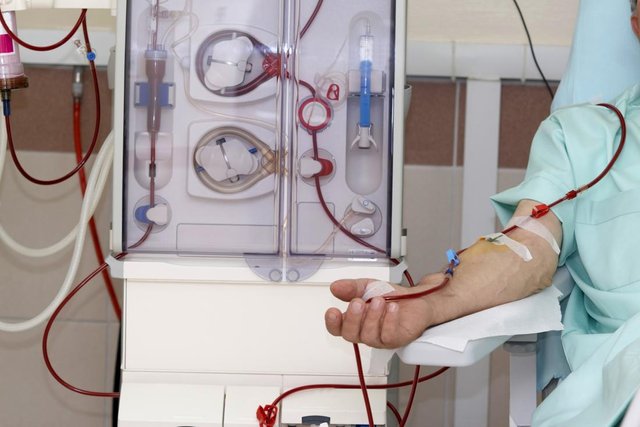 ESKD is when a person's kidneys fail.
ESKD is when a person's kidneys fail.
End-stage kidney disease or ESKD is the most advanced stage of chronic or long-term kidney disease, which is when a person gradually loses kidney function over time.
There are five stages of kidney disease. ESKD is stage 5.
When a person has ESKD, their kidneys fail to function, either wholly or partially. Even if the kidneys work partially, it is not enough to meet the body's needs.
The kidneys have an essential role in the body. They filter out waste and excess water from the blood. These waste products come out in a person's urine.
If a person has ESKD, waste products can build up in their blood and may become life-threatening.
A person with ESKD will need kidney dialysis or a kidney transplant to save their life.
Symptoms of ESKD
A buildup of waste products in the blood causes the symptoms of ESKD. The buildup occurs because the kidneys are no longer able to filter those waste products out of the blood sufficiently.
A person with ESKD may experience:
reduced appetite
feeling or being sick
headaches
tiredness
itchy, dry skin
unexplained weight loss
chest pain
shortness of breath
trouble concentrating
little or no urination
swelling
muscle cramps
skin discoloration
tingling in the hands or feet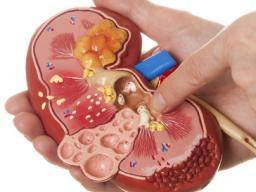 Chronic kidney disease can slowly lead to kidney failure and ESKD, but the kidneys may also stop working suddenly.
Chronic kidney disease can slowly lead to kidney failure and ESKD, but the kidneys may also stop working suddenly.
If a person suddenly has kidney failure, it is called acute renal failure or acute kidney injury.
We explore the causes of ESKD as well as acute renal failure below:
Chronic causes of ESKD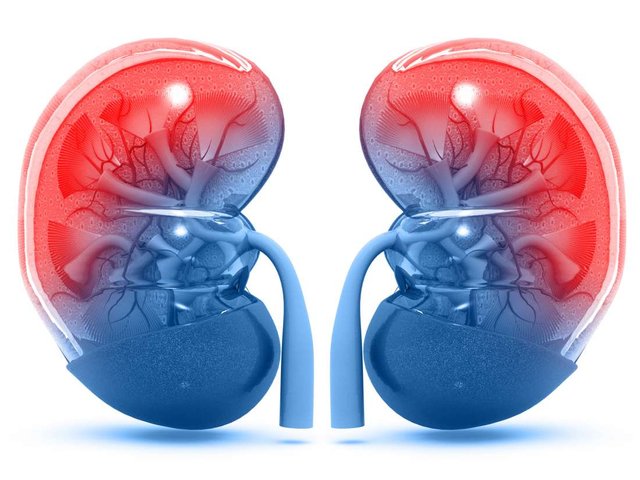 High blood pressure may cause ESKD.
High blood pressure may cause ESKD.
According to the American Kidney Fund , diabetes and high blood pressure are the first and second most common chronic conditions that cause ESKD.
Other chronic conditions that can cause ESKD include:
lupus and other autoimmune conditions
genetic conditions originating at birth
problems with the urinary tract
nephrotic syndrome, which is a type of kidney disease
Acute renal failure
Acute renal failure is when the kidneys stop working suddenly. This may occur due to:
a heart attack
poisoning
limited blood supply to the kidneys
severe dehydration
urinary tract obstruction
substance misuse
severe blood infection, known as sepsis
Risk factors
ESKD is the most advanced stage of chronic or long-term kidney disease. Chronic kidney disease affects between 10 and 16 percent of adults worldwide.
Several factors increase the risk of chronic kidney disease, including:
smoking
high blood pressure
diabetes
being overweight
older age
being of African-American descent
low birth weight
family history of chronic kidney disease
If a person has chronic kidney disease, the following factors increase the risk it will progress to ESKD:
not managing diabetes
not controlling high blood pressure
drinking too much alcohol
smoking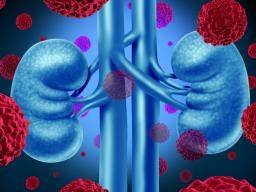
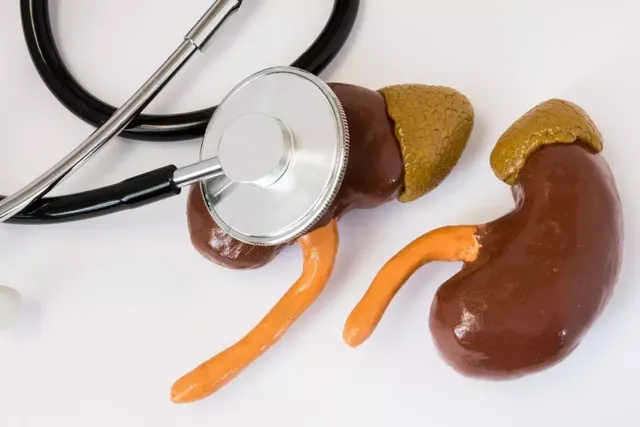
Yeah thanks my friend good to have you here
Congratulations @olawhite! You have completed the following achievement on Steemit and have been rewarded with new badge(s) :
Click on the badge to view your Board of Honor.
If you no longer want to receive notifications, reply to this comment with the word
STOPDo not miss the last post from @steemitboard:
SteemitBoard World Cup Contest - The results, the winners and the prizes
For real though?!?